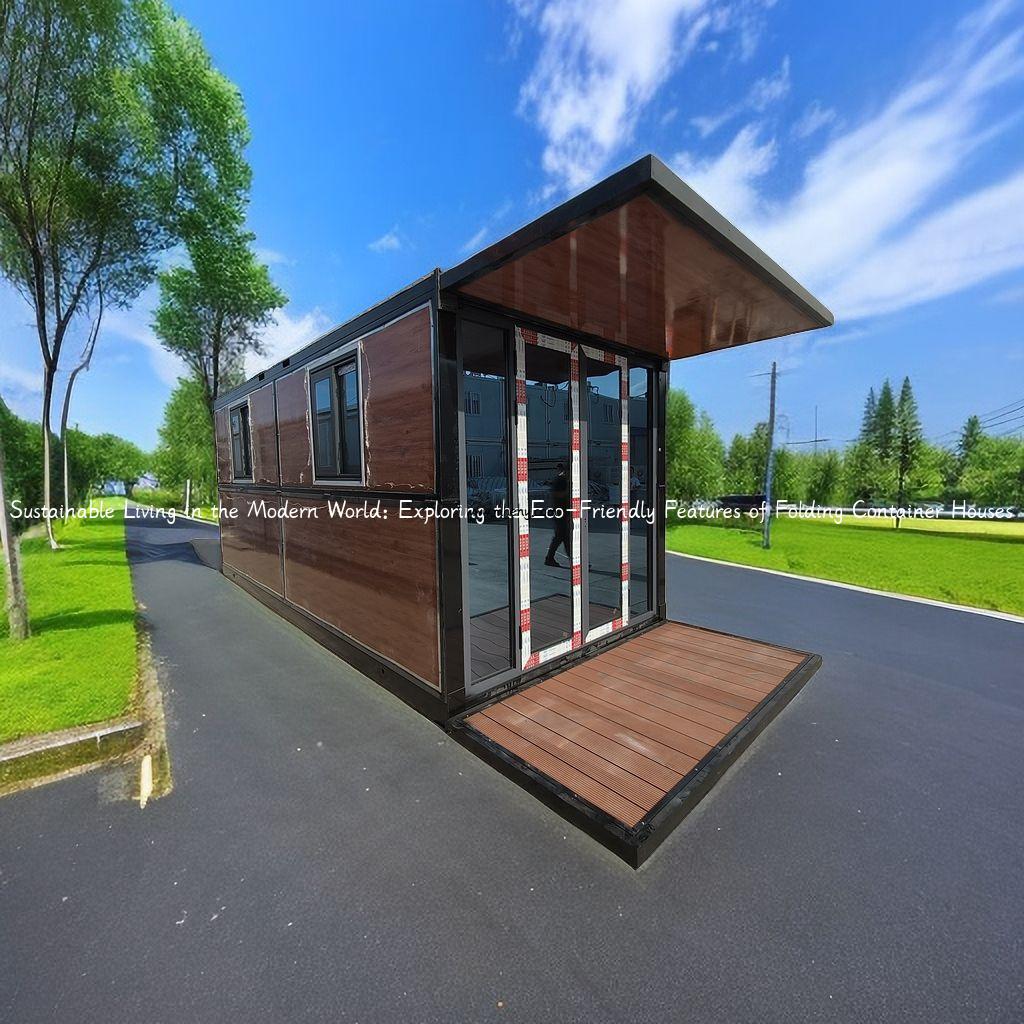Sustainable Living in the Modern World: Exploring the Eco-Friendly Features of Folding Container Houses


In today’s world, sustainability has become a buzzword. More and more individuals are embracing the concept of sustainable living, understanding the environmental impact of their actions and making conscious choices to reduce their carbon footprint. One such choice gaining popularity is the use of folding container houses, which are revolutionizing the way we live in an eco-friendly manner.
Folding container houses are a modern marvel that combines the convenience of portability with the principles of sustainable living. These houses are designed using repurposed shipping containers, which are typically discarded and left to rust in junkyards. By repurposing these containers, we are not only reducing waste but also reducing the demand for new construction materials, thereby conserving natural resources.
One of the most significant eco-friendly features of folding container houses is their low energy consumption. These houses are equipped with excellent insulation properties, which help maintain a comfortable temperature inside all year round. As a result, the residents can rely less on mechanical heating and cooling systems, ultimately reducing their energy consumption and lowering their carbon emissions.
Furthermore, folding container houses often incorporate sustainable energy sources, such as solar panels, to power the household appliances and lighting. By harnessing the sun’s energy, these houses can operate independently from the grid and significantly reduce their reliance on non-renewable sources of electricity. This not only helps the environment but also saves homeowners money in the long run.
Another eco-friendly feature of folding container houses is their ability to be easily transported. Unlike traditional brick-and-mortar houses, which require substantial amounts of energy and resources to build, folding container houses can be disassembled and transported to different locations without causing any damage. This makes them perfect for individuals who frequently move or for those looking to reduce their ecological footprint by living in small, energy-efficient spaces.
Water conservation is another crucial aspect of sustainable living, and folding container houses excel in this area as well. These houses can be equipped with rainwater harvesting systems, which collect rainwater and store it for various purposes like watering plants, flushing toilets, or even for everyday use. By utilizing rainwater, residents can reduce their reliance on municipal water supplies, which often come from energy-intensive treatment plants.
Moreover, folding container houses offer ample opportunities for incorporating green spaces and gardens. These houses can be designed to include green roofs, where plants are grown on the roof, providing insulation and reducing heat loss or gain. Additionally, homeowners can set up vertical gardens or take advantage of the available space to grow their own fruits, vegetables, and herbs. This not only promotes self-sufficiency but also improves air quality by absorbing carbon dioxide and releasing oxygen.
In conclusion, folding container houses are a remarkable example of sustainable living in the modern world. Their eco-friendly features, such as repurposing materials, low energy consumption, sustainable energy sources, easy transportation, water conservation, and the integration of green spaces, make them an attractive choice for individuals looking to reduce their environmental impact.
As we continue to face environmental challenges, it is crucial to explore and embrace alternatives that allow us to live in harmony with the planet. Folding container houses offer just that – an opportunity to create a sustainable future without compromising comfort, convenience, or style.













